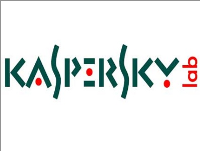Channel News
Lenskold Group/Pedowitz Group Study Reveals Benefits Of Integrated Marketing Automation
 Organizations that integrate their marketing automation with CRM systems can reap a number of benefits, including an improvement lead generation strategies, campaign ROI and overall sales results. A recent study from Lenskold Group and The Pedowitz Group, reaffirmed that companies using integrated marketing automation are more likely to outgrow their competitors. Furthermore, 66% of respondents with integrated marketing automation said they expected faster growth.
Organizations that integrate their marketing automation with CRM systems can reap a number of benefits, including an improvement lead generation strategies, campaign ROI and overall sales results. A recent study from Lenskold Group and The Pedowitz Group, reaffirmed that companies using integrated marketing automation are more likely to outgrow their competitors. Furthermore, 66% of respondents with integrated marketing automation said they expected faster growth.
The 2012 Lenskold Group/The Pedowitz Group Lead Gen Marketing Effectiveness Study indicated that these organizations lead in a number of other areas when compared to other businesses, including:
- Having key processes in place to manage lead gen marketing effectiveness (56% versus 22%).
- Leveraging an organizational structure to track lead gen initiatives (49% versus 24%).
“The integration between marketing automation and CRM allows for the closed loop reporting process to take place and enables a marketing group to keep track of ROI,” Debbie Qaqish, Principal and Chief Revenue Marketing Officer at The Pedowitz Group, told Channel Marketer Report. “Companies that use ROI and marketing automation outperform organizations that use only traditional metrics.”
Overall, 28% of organizations using marketing automation reported an increase in revenue per sale, according to the report. Leading benefits these organizations experienced included better lead quality and quantity, an boost in overall sales-accepted leads and improved total marketing revenue contribution.
Approximately 50% of the B2B marketers surveyed said their companies use marketing automation solutions integrated with their sales automation and/or CRM systems. Another 18% use non-integrated marketing automation, while 32% do not yet use marketing automation.
“Executives can bring lead generation effectiveness to higher levels with marketing automation that is supported with processes, sales alignment and measurement of key outcomes including ROI and revenue,” said Jim Lenskold, President of Lenskold Group in a press release. “Driving growth and financial contribution demonstrates marketing accountability and earns credibility.”
Nearly half (48%) of all respondents indicated that they are “somewhat satisfied” with the business effectiveness they’ve experienced using automation, while only 13% were “very satisfied.” Top reasons why companies weren’t “very satisfied” include a lack of:
- Content for campaigns (16%);
- Alignment with the sales organization (15%);
- Optimization of technologies (15%);
- Strategy (12%);
- Required skills (11%);
- Reliable measurements (8%); and
- Executive sponsorship (7%).
“The goal of a marketing automation system is to be a platform that allows marketing to more directly connect to revenue,” Qaqish explained. “So, in order to get the most out of marketing automation, companies need to take a holistic approach, not a singular technology approach. It requires a revenue marketing strategy, alignment and training of key stakeholders, potentially a new organization, mapping and optimization of key processes such as funnel management and lead management, optimizing the technology architecture especially marketing automation and CRM integration, focused content and tracking of results.”
The study, conducted with assistance from Demand Gen Report, polled more than 370 professionals working for B2B marketing organizations. Approximately 80% of the respondents were U.S.-based marketers, ranging from companies with less than $5 million in annual revenue to enterprises with $50 million or more in revenue.
Additional information on the 2012 Lenskold Group/The Pedowitz Group Lead Gen Marketing Effectiveness Study is available here.






![The Anatomy Of A Perfect Event [Infographic]](https://channelmarketerreport.com/wp-content/uploads/2014/05/Screen-Shot-2014-05-20-at-3.51.14-PM-300x281.png)







